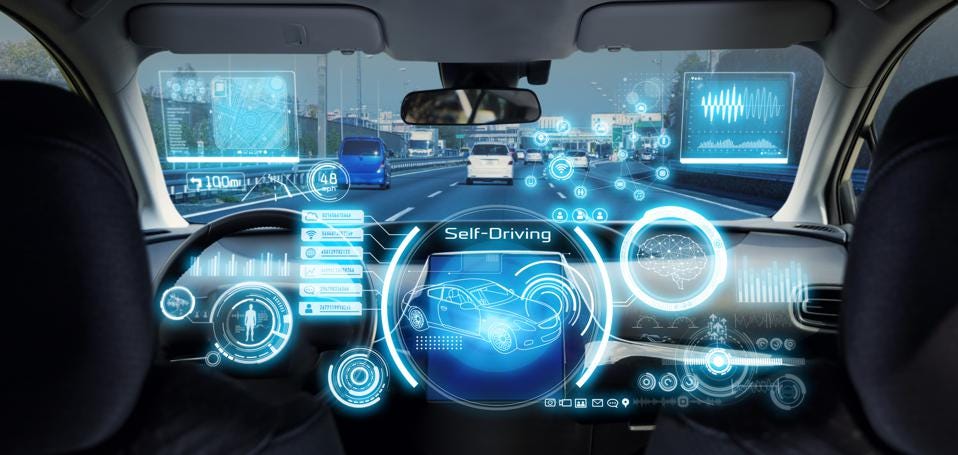
Is the UK Ready for Driverless Leasing Cars?
The first British-made car hit the highway in 1894. Often referred to as horseless carriages, the public did not universally welcome cars. Fast-forward 128 years, and the latest leap forward in car technology, the driverless car, is facing much the same issues. Why is the UK reluctant to adapt to this new technology?
A Brief History of the Driverless Car
Driverless car technology is not as new as many think. The autonomous vehicle concept can be traced back to the 1500s and Leonardo da Vinci. He created a cart powered by high-tension springs that could be pre-programmed to move along a specific path.
Francis Houdina demonstrated a radio-controlled car in 1925. The radio could control movement, gear shifts, and sound the horn. Unfortunately, the project was shelved after the operator lost control and crashed into another vehicle.
General Motors unveiled its first self-driving car at the 1939 World's Fair. Radio-controlled electromagnetic fields guided the electric car using magnetised spikes embedded in the road. The concept car became a working reality in 1958. Moon landing vehicles were the next step in automated driving. James Adams fitted cameras on the Stanford cart, which was pre-programmed to move along a specific path.
Cameras are an integral part of today's autonomous vehicles and were first added to road vehicles in 1977. The Japanese invention could safely reach speeds of up to 20 miles per hour. Carnegie Mellon University undertook further work on neural networks in 1990. The Department of Defence later sponsored a series of events to push forward the development of driverless vehicles. By 2010, several major car manufacturers, including BMW, Mercedes-Benz, and Ford, were working on driverless car technology.
It is of no surprise that the first company to come close to developing safe, road-worthy driverless cars is Tesla. The British government began a consultation process in 2020, intending to legalise driverless lease cars on UK roads as early as 2021. While that didn't come to pass, driverless cars are now a reality and could be on our streets in the next few years, reaching speeds of up to 70 miles per hour.
What are the Main Concerns about Driverless Technology?
Some automated elements are already included in cars today. Driver alert warnings, self-correcting steering, and many other computer systems we have become accustomed to are built on the same technology as automated cars. However, the driver is still in ultimate control.
Safety is most people's key concern. If something goes wrong on the motorway with no driver, the worry is it is more likely to result in a collision. Others state that autonomous vehicles will lack driver intuition and cannot gauge dangers in the same way as a human.
Some drivers state that it will take away the joy and thrill of driving. Other concerns include how you would insure a driverless vehicle and who would be ultimately responsible if there were an accident. The risk of cars being hacked or having electronic issues are also causes for concern.
How concerned is the general public?
Out of 1000 people surveyed, we found that 73% of the UK public wouldn't feel safe in a driverless car and that only 13% would trust a driverless car to take their children to school unattended. Four-fifths of those surveyed believe that they are better at spotting hazards than an automated vehicle, and over half wouldn't trust one to go over 30 miles per hour. While this is quite a small survey, over a third of those surveyed would never trust a driverless car, and 90 per cent believe the UK road system is not ready for the technology.
Personal control and responsibility
Whether it is a horse, a carriage or a motor vehicle lease, control has always ultimately been in the hands of the person behind the wheel (or reigns). With their plethora of technological aids and warnings, even modern cars have the driver in ultimate control. Autonomous vehicles require the driver to give up that control and hand it entirely over to a computer.
Humans are not good at having control taken away from them. While most welcome the support offered by automated systems and services, they also like being able to turn them off.
Computers make decisions based purely on pre-set commands and data. They do not make emotional decisions nor do they change their minds unless new data is inputted that conouter acts previous data. The computer would make all the decisions in an automated vehicle based on data from key sensors on the car and the road.
They may make quicker decisions and abide by the letter of the law, but would those decisions always be safe and morally correct? This is enough to make people question whether they would be safe and ethical.
Is the public ready for driverless cars?
No, the overwhelming majority are not anywhere near ready. As well as safety concerns, the finance needed to ready the roads would need to be pulled from somewhere, and people would not be prepared to see their taxes spent on this when they are still avoiding potholes and struggling to heat their houses. Then there is the question of the security of the computer systems themselves. Just how safe are they from hackers? A question we will look at another time.
Accessing the best car leasing deals
We may not be ready for driverless cars, but at Express Vehicle Contracts, we have access to the newest and brightest leasing cars and deals on the market. Whether you are looking for the latest technology, the best safety record or a good allrounder, we have a car leasing deal for you.
Follow us for news and updates on the changing face of driving.










